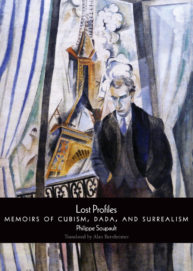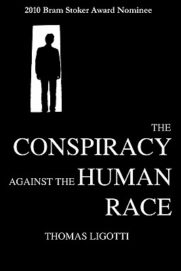Download a free copy of Rain Taxi issue 84 here.
[contact-form-7 id="24732" title="Rain Taxi Back Issue Download 84"]

Download a free copy of Rain Taxi issue 84 here.
[contact-form-7 id="24732" title="Rain Taxi Back Issue Download 84"]
To purchase issue #84 using Paypal, click here.
[goal id="24805"]
Judy Juanita: DeFacto Feminist | interviewed by Julia Stein
Michelle Latiolais: Interruptions & Interconnections | interviewed by Alan Grostephan
Anne Raeff: From the Periphery of Conflict | interviewed by Derek Askey
James Reiss: Writing as Survival | interviewed by Bryan Voell
The Political Mind: Mark Lilla’s quest for a new liberalism | by John Toren
The New Life | a comic by Gary Sullivan
The Great Clod: Notes and Memoirs on Nature and History in East Asia | Gary Snyder | by James P. Lenfestey
René Magritte: Selected Writings | Kathleen Rooney and Eric Plattner, eds. | by Laura Winton
Black Natural Law | Vincent W. Lloyd | by Spencer Dew
The Lights of Pointe-Noir: A Memoir | Alain Mabanckou | by Erik Noonan
Retire the Colors: Veterans & Civilians on Iraq & Afghanistan | Dario DiBattista, ed. | by Leah Roche
Suburban Gospel: A Memoir | Mark Beaver | by Adam Young
An American Utopia: Dual Power and the Universal Army | Fredric Jameson | by Paul Buhle
Soft City | Hariton Pushwagner | by Jeff Alford
What is Obscenity? | Rokudenashiko | by Amelia Basol
Brightfellow | Rikki Ducornet | by David Wiley
Don’t Think | Richard Burgin | by Colin Fleming
Horses, Horses, In The End The Light Remains Pure: A Tale That Begins with Fukushima | Hideo Furukawa | by Edward A. Dougherty
Land of Love and Ruins | Oddn´y Eir | by Olga Zilberbourg
The Birds | Tarjei Vesaas | by Douglas Messerli
Another Brooklyn | Jacqueline Woodson | by Veronika Bondarenko
The Ballad of Black Tom | Victor LaValle | by Ryder W. Miller
The Mandibles: A Family, 2020-2047 | Lionel Shriver | by Monica Hilerman
Reputations | Juan Gabriel Vásquez | by Lexi Turin
Hot Season | Susan DeFreitas | by Donna Miele
Off to the Next Wherever | John Flynn | by Ben Sloan
Willy Loman’s Reckless Daughter: or Living Truthfully Under Imaginary Circumstances | Elizabeth A. I. Powell | by James Naiden
Obliterations: Erasures from the New York Times | Heather Aimee O’Neill and Jessica Piazza | by Patricia Grisafi
XX: Poems for the Twentieth Century | Campbell McGrath | by John Bradley
Break the Habit | Tara Betts | by Heidi Czerwiec
The Day’s Last Light Reddens the Leaves of the Copper Beech | Stephen Dobyns | by Jennifer van Alstyne
Exercises in High Treason | John J. Trause | by Richard Kostelanetz
Brawl & Jag | April Bernard | by Edward A. Dougherty
Take This Stallion | Anais Duplan | by Laura Winton
Once And For All: The Best of Delmore Schwartz | Delmore Schwartz | by Patrick James Dunagan
To The Left of Time | Thomas Lux | by George Longenecker
To purchase issue #84 using Paypal, click here.
Rain Taxi Print Edition, Vol. 21 No. 4, Winter 2016 (#84) | © Rain Taxi, Inc. 2016-2017
 Blake Morrison
Blake Morrison
Chatto & Windus
by Jane Baston
From our first step on Shingle Street we feel the shifting terrain. This land where the sea meets the marshes is duplicitous; out there we must be vigilant for sandbanks, rip-tides, and wrecking grounds. Although the stones are “warm as stoves” we must beware the
sneaky street,
That smiles and mangles, lures and wrecks,
Where water strips and winds dissect,
Where sea-kale bows its green-grey head
As waves wash up the new-made dead
The regular structure of end-rhymed dimeters and tetrameters gives an incantatory power to this opening poem. In keeping with its form as a ballad, it has an intensity and immediacy that drives the reader on like the action of the waves:
The grind goes on,
A churning bowl
Of sand and stone.
A watery mix that unbuilds homes,
Unearthing earth, unlaying land.
This potency continues throughout Blake Morrison’s collection. Water washes through the poems, finding ingress to the very language used to describe it, as in the wordplay of “Flotsam”: “tideswell seaslap crabscrawl / windscut landslack sandsail.”
The tides reclaim both land and memory. In “Covehithe” the cliffs “are stuck in reverse” as they are pushed back by the sea:
From church to beach
was once a hike.
Today it’s just a stroll.
Soon it’ll be a stone’s throw.
The problem of coastal erosion, it seems, is not hydraulic action but the power of the dead “in their grassy mounds” who, “longing to be back at sea . . . entice the sea to come to them.” Such romanticism is also invoked in the love poems. In “Carissimo” the lovers’ exploration of a sandbank places the waves “like excited natives / clamouring round our feet.” Similarly, in “On the Beach” they “lay in a hollow on the shingle, / while the sea bowed and scraped below.”
Lest we be lulled by the “sigh” and “shush” of a yielding sea, the poem “Wave” swells to become a nightmare vision of a tidal wave. The accretion of language builds up like the wave: “the waterwall is here, the sea-cliff, wave-mound, ocean-bore, surf-glut” that “will shove you down.”
“Wave” marks a turn in the collection. Although some themes continue—culpability, love, loss and the possibility of happiness—the focus is now on language, specifically that use of language that we call poetry. The sequence “THIS POEM” encompasses reflections on contested areas such as the value of poetry (“Bonus”), the threat of surveillance (“Prism”), the power of government (“Redacted”), the cult of celebrity (“It was Good while it lasted”) and the obfuscation of language (“Seminar”). Playful and caustic, this sequence questions and delights. Advice to the student in the literary theory seminar is well taken:
Just make sure to be awake, before the end—
nod, applaud, rap your knuckles on the table,
as if you’ve been enlightened and inspired
and when you leave the room will see the world afresh,
no longer baffled by its hermeneutics.
In the final sweep of the collection Morrison turns to the personal. Bold and elegiac, he recalls childhood holidays, missed opportunities, and family life. Here, too, we see the influences on Morrison’s voice, especially Larkin and Heaney. The four-line poem “Narcissus” is an affectionate invocation of Heaney’s poem “Personal Helicon”:
Thinking the boiler had packed up from lack of oil
I climbed the rusty tank to peer down the hatch
And there I was, bright-faced and young again,
In the viscous black pool at the bottom.
Morrison plays with form. In “Life Writing,” a dextrous take on the villanelle, he considers the possible pitfalls of memoir, a genre Morrison knows well:
The humour and affection go unread.
Your candour earns you merciless reviews.
Don’t try to bring to life what’s in your head.
It’s safer telling lies about the dead.
In an interview with The Independent (31 January, 2015), Morrison expressed some apprehension about his return to poetry; his last full collection was 1987’s The Ballad of the Yorkshire Ripper. Since Morrison’s voice in Shingle Street is authentic, sharp, and replete with the past, this “return” is a most welcome homecoming.
 David A.J. Richards
David A.J. Richards
Cambridge University Press ($30)
by Brian Gilmore
I began reading David A.J. Richards’s book Why Love Leads to Justice the week before the Pulse Club Massacre in Orlando, Florida. Forty-nine patrons lost their lives and fifty-three more were wounded when a homophobic gunman opened fire in the club as it was closing on June 11, 2016. It has been described as the worst mass shooting in U.S. history, though this is likely inaccurate. Nevertheless, it was a tragedy beyond comprehension, one that highlights the need for important books such as this.
Richards, openly gay for decades and a law professor, focuses on the poisonous idea of patriarchy so prevalent and destructive in the West. Through the lives of several prominent gay men and women who must navigate a society governed by oppressive love concepts, Richards argues for something new. In his world, the entrenched “Love Laws” of the West—those advanced by patriarchy, sexism, racism, hate, and homophobia—can be challenged and discredited effectively.
Richards undertakes this task by writing about the lives and the work of figures such as writer James Baldwin, poet W.H. Auden, composer Benjamin Britten, and First Lady, Eleanor Roosevelt. He sets up his detailed discussion of these lives and social ideals with an opening section that explains patriarchy, which he sees as the key to understanding our backwards society. Richards writes that it “supports and . . . enforces the antidemocratic structural injustices of extreme religious intolerance, racism, sexism, and homophobia.” In addition, patriarchy “elevates some men over other men and all men over women.” The father in the family structure holds “authority” over all affairs of daily life, and it is this troubling arrangement that is challenged in Richards’ book. These early passages are important because as Richards eventually notes, patriarchy has created a “personal and political psychology that supports” the injustices it seeks to uphold in society.
The fact that individuals in positions of power have embraced patriarchy has also resulted in embedding it into our laws and political systems. Thus, it is no accident that anti-LGBT laws continue to be championed by so many in the name of religion or social custom, just as slavery, Jim Crow, and other anti-black laws were once part of the nation’s legal structure. It is also no surprise, according to Richards, that violence as witnessed in Orlando remains a part of our patriarchal society, because people such as the club goers that evening challenge the patriarchal hierarchy by breaking the “Love Laws” laid out for them.
Richards’ portraits of gay men, their relationships, and their personal struggles is impressive. Auden, the celebrated British poet, is depicted as a proud gay man but also one who is tormented, having embraced the very homophobia that he has successfully challenged. The chapter on Christopher Isherwood, Auden’s lover and also a celebrated writer, is just as rich. Born into a prestigious British family where he was the son of a mythic British military officer killed in World War I, Isherwood rejects the typical masculine life of a war hero only to embrace his late father’s other side—his love of liberal arts and humanities. Father is more than a military myth in death; he is a man who can love. Christopher, the son, as a result of this influence, moves to Berlin at Auden’s behest and becomes a writer.
It is no surprise that James Baldwin and Bayard Rustin have their own chapters here. Both emerged during the civil rights period and both lived lives as openly gay men who challenged America’s puritanical patriarchy. While Rustin was reared in the world of “anti-patriarchal Quakerism,” Baldwin’s development as an essential voice on injustice in America came about because he was immersed in the patriarchal world of his stepfather’s Baptist church in Harlem. While Richards notes that both men are mostly known for their “ethical resistance” to white supremacy and its manifestations in society, they too broke the “Love Laws” Richards keeps at the center of the book. Both did so in their relationships with men and Baldwin does so in his writings as well, in particular his novels like Giovanni’s Room.
Richards devotes a chapter to three women who led low-key personal lives as lesbians: Eleanor Roosevelt, Margaret Mead, and Ruth Benedict. Once again, Richards’ selection of these particular women is important not just for who they were and how they conducted their lives, but also for their work that contributed to the advancement of humanity outside and beyond the normal patriarchal constrictions. Roosevelt’s relationship with journalist Lorena Hickok, not widely known by the general population, is in itself quite a revelation here.
At the end of Why Love Leads to Justice, Richards again explains why more books of this nature must emerge. “As we have seen, again and again, what holds in place some of the structural injustices of our world (anti-Semitism, racism, sexism, and homophobia) are the Love Laws—the series of written and unwritten rules that enforce patriarchy.” Richards has given us a book that resists those laws and showcases the lives of people that did so as well.
 Jorge Armenteros
Jorge Armenteros
Spuyten Duyvil ($16)
by Lacy Arnett Mayberry
Craving escape from a stifling relationship, a perfumery student with an innately strong sense of smell stumbles into lodging at a “fourth class hotel” run by a man who hasn’t changed his shirt—or left the site—in years. The characters in Jorge Armenteros’s second novel travel between Paris, Guadalupe and Marrakesh, searching for themselves and one another. They are both drawn to and repulsed by the hotel proprietor, known only as “Striped Tunic” due to his civet-smelling apparel, who becomes central to the story, acting as an eerie and unwanted oracle.
Imena is the first to arrive at his red door in Marrakesh, drinking in the city’s novel scents—“soft, ethereal, and tender.” At night, the pungent Striped Tunic listens to her howling in her sleep. She so yearns to expose a truth within herself that on her way to the public bath, “the idea of entering a gathering place and disrobing herself in front of others produced a sense of delight.” She takes up with a sculptor of torsos, though he proves just as draining as the relationship she recently fled. Ultimately, she turns to her intuition and training to meld scents into the cure she can find no other way. Although her internal struggle can feel a bit abstruse at times, Armenteros’s direct prose carries the reader willingly through her plight.
Imena’s overbearing professor-boyfriend, Patricio, follows shortly afterward in desperate search of her. He laments that her “absence leaves me facing my past, alone.” He is left to remember his childhood in Buenos Aires, the traumatic death of his mother, and his current identity crisis, which comes from being unwilling to face his past. He grasps onto Imena as a way of muting his pain and when she leaves him, rather than turning to the true problem, he frantically scrambles to find her, wasting his effort and strength on an ultimately fruitless quest.
Meanwhile, René, Patricio’s graduate student, undergoes a much more complex identity crisis—that of gender. “What he despised most were his hanging testicles and flaccid penis, a grotesque sight, an indelible stain.” The reader follows René in his quest to become “Renée,” an often violent journey in which he abandons his past entirely and suffers botched surgery and predatory stalking, among other dramas—unflinching and graphic scenes that confront us with the character’s unique pain.
The novel crosses between past and present. Armenteros introduces his characters by braiding stream-of-consciousness first person with distant third in a seemingly random fashion. The reader flies from Patricio’s past into Imena’s thoughts, to the omniscient viewpoint of the happenings at the hotel. The effect is one of deep character immersion, compelling the reader through each short section and toward what feels like the story’s inevitable ending.
One of the most fascinating characters, of course, is Striped Tunic, the enigmatic recluse seen by his tenants as “possessing a piercing truth.” An otherworldly figure going through his own transformation, this nameless man forces each character to look more closely at inner wounds and also witnesses their, at times, brutally inflicted physical wounds. At the same time, Striped Tunic inspires delusion among his guests. At different points in the narrative, Imena, Patricio, and René each express belief that he or she can fly, that “the air will hold me.” Armenteros charges that air—alternately perfumed and rancid—to deliver a compellingly erratic narrative.
 Philippe Soupault
Philippe Soupault
Translated by Alan Bernheimer
City Lights Books ($10)
by John Toren
Philippe Soupault, along with Louis Aragon and André Breton, was one of the "three musketeers" of the Surrealist movement. His brief memoir of those heady times of artistic creativity and incendiary intellectual revolt appeared in France in 1963, but it has only now been translated into English. Should we care?
Well, all such "present at the creation" memoirs carry a certain interest because the tone is anecdotal rather than scholarly, the judgments strikingly personal rather than sourly academic, and the form reflective rather than narrative or analytic. Soupault's memoir would not be out of place in the company of such minor classics as Ambroise Vollard's Recollections of a Picture Dealer, Manuel Rosenthal's Satie, Ravel, Poulenc, Jean Cocteau's Professional Secrets, or even Ernest Hemingway's A Moveable Feast.
Soupault's own poetry has been described by Paul Auster, in the introduction to the Random House Book of Twentieth Century French Poetry, as displaying a charm and humility that's often absent from Surrealist work. This memoir exhibits the same qualities. Soupault has a kind word for everyone (unlike Hemingway, for example) and tiptoes around his impressions, layering his observations in an almost Proustian fashion.
In his discussions of the origins of Dada, for example, Soupault emphasizes how he and others only gradually came to realize that the content of their manifestos was less important than the public's negative reaction to them: “The insults that were abundantly hurled at us in every tone, not to mention the rotten eggs, tomatoes, and pieces of meat, persuaded us that we were on the right path.” Yet he doesn't shrink from emphasizing that the Dadaists goal was nothing short of a moral critique of post-World War I society, and he suggests that in more recent times "the reign of the absurd" might still have an important role to play.
But Soupault's reminiscences range well beyond the movements referred to in the book's subtitle, spanning the decades from Apollinaire and Proust to Georges Bernanos and the painter Henri Rousseau. He recalls, for example, that the poet Pierre Reverdy's “gaze was as disturbing as his smile because it pinned you, like a butterfly pinned to a corkboard."
Reverdy's conversational style was similarly unusual. Soupault describes their first meeting as follows:
I made no secret of my admiration, which, though it astonished him, he judged to be sincere. But he didn’t give me a chance to talk about it. When it was his turn to speak (and he took the first turn in any conversation), he did not readily relinquish it. When I ventured to agree with him, he cut me off and said most sincerely and without any irony, “Please, let me get a word in . . . " The only thing to do was to keep quiet.
The accumulation of choice details leaves us with the impression that at an advanced age, Soupault continued to look back on the past fondly—and to inhabit, in his own quiet way, the world that had been explosively dramatized decades earlier by Dada and Surrealism, wherein events counted for more than aesthetic artifacts. Or as Blaise Cendrars had taught him, "You have to live poetry before you write it; writing, that was superfluous."
 Vladislav Vančura
Vladislav Vančura
translated by Carleton Bulkin
Twisted Spoon Press ($22.50)
by Jeff Bursey
When one considers the early 20th century literary works of Czechoslovakian writers, the names that come first to mind are Karel Čapek, Jaroslav Hašek, Franz Kafka, and Richard Weiner. Their contributions to Modernism (and, especially in Kafka’s case, to how we regard the world) are noticeable and undeniable. In apparent contrast is Marketa Lazarová (1931), which may initially look like a throwback to an earlier style and mode of thinking than that possessed by Vladislav Vančura’s aforementioned contemporaries. This is partly because it is set during an unspecified time in “the Mladá Boleslav region of Bohemia, during a time of trouble, the king struggling to maintain the security of his highways, facing severe difficulties with the literally criminal conduct of the nobles. . . .” What’s presented are the rough lives of brigands—chiefly the family and followers of the robber and patriarch Kozlík, and secondarily those of another highwayman, Lazar—and a captain of the army, Pivo, whose duty is to end the career of Kozlík by assaulting his forest stronghold in the dead of winter.
The frequent references to God, along with quotations and examples from the Bible, might also contribute to making the novel seem out of step with Modernism. Internally, those things have little sway on the nature of the criminals. “Not even the Lord’s commandments would they heed,” says the narrator of Kozlík’s gang, and the matriarch, Lady Kateřina, in stunning certitude, blindness, and self-importance, believes “in Jesus Christ, I long for Him without pause. If only He had been a guest at my wedding, if only I lived in my old matrimony in Heaven. . . . [Kozlík’s] soul,” she continues after he has been captured by Pivo, “will ascend and alight with the souls of the just on the robe of the Loving Judge, as bees alight on the robe of the beekeeper.”
Throughout Marketa Lazarová there is the contest of strong men—Kozlík and his son Mikoláš versus Captain Pivo—as they jostle for supremacy. The Lazar family becomes more entwined than ever with their fellow brigands when Marketa, their fourth daughter, is taken by Mikoláš as recompense for damages to his person and his honor. She is understandably unhappy with this—“See her take a step back and tremble with horror”—but fairly quickly finds herself less torn between a once-upon-a-time imagined future where she would take the veil and the experience of violent sex that introduces her to sensual pleasure and, eventually, love. For not being totally consumed by guilt at enjoying her lover, Marketa is seen as a “slut” and a “harlot,” just as Alexandra—another of Kozlík’s children, who falls for a German count named Kristian—is called by that man’s father a “trollop” the moment he sees her.
If that summarized the entirety of this novel then there would not be much to commend it, but more is going on. Vančura (1891-1942) was a successful short-story writer and novelist who belonged, throughout the 1920s and 1930s, to an avant-garde group of artists; he was also a filmmaker, and in this novel he sweeps from panorama shots to close-ups of the principals while deflating the pretenses of the earlier time period. No sooner has Kateřina spoken of Christ then the narrator undercuts her hollow piousness: “What’s this? Speaking to brigands of the Kingdom of God? For in truth, I am not sure whether this is the best fount from which to draw instruction for these lads. They dig at the earth with heel and sword, and not a single one lifts his eyes from the ground.” Her children are earthbound and rarely look to Heaven, and in this respect they cannot be saved.
In one of many asides addressed to the reader, the narrator stops describing events to speak of the content of the story: “What’s that, this tale of bygone days is not to your liking? Don’t you take even a smidgen of pleasure in hearing about frosts so bitter, about men so impetuous and ladies so comely? Compared to the delightful complexities of modern literature, don’t you find this tale as smooth as a threshing floor?” Present-day readers might find it harder than Czech audiences did in 1931 to appreciate the slyness underneath the depictions of Bohemian battles and to see the modernity in the at times belittling, at times ambiguous, references to abstracts or higher powers (God, the Church, Imperial rule), though the self-awareness of the narrator will jump out. When Marketa Lazarová was first published Czechoslovakia had existed for only thirteen years, its creation due to the negotiated peace that followed the First World War. Today we might read the hostility and bitter words about sovereign might, soldiers, and cruel customs of earlier times as expressions of a healthy distrust towards any authority, such as those who governed empires and led them into a long-lasting bloodletting.
In the 1920s Vančura was a member of the Communist party, but membership didn’t last the decade. In the late 1930s he joined the resistance movement against the occupying German power. Captured by the Gestapo in 1942, his life ended when the Nazis killed a great number of Czechs following the assassination of Reinhard Heydrich, Deputy Reich Protector of Bohemia and Moravia (parts of the by-now former Czechoslovakia). In those roughly twenty years his output of novels and short stories was constant, with Marketa Lazarová one of his most popular. As Vančura is seldom rendered in English, we are fortunate to have so lively a work now available.
 Selected and Translated by Paul Blackburn
Selected and Translated by Paul Blackburn
Edited by George Economou
NYRB Classics ($16.95)
by Erik Noonan
Two people shaped Paul Blackburn’s life and art: his mother, a poet and lesbian named Frances Frost, and Ezra Pound. Frost, whom he idolized, mailed him a book by W.H. Auden when he was in the Army, and his first poems were imitations of the expatriate queer English poet. Blackburn visited Pound at St. Elizabeth’s Hospital in Washington, D.C., where the controversial American had been confined after being declared unfit to stand trial for treason. Blackburn corresponded with Pound and followed his example, studying the Occitan tongue and the troubadour corpus at the Universities of Wisconsin and Toulouse, and producing a Master’s thesis that he published under the title Proensa with Robert Creeley’s Divers Press in Mallorca in 1953. He would continue to expand and revise his free renditions until he died of esophageal cancer in 1971.
In Europe on a Fulbright Scholarship as a young man, Blackburn located within the cultural heritage of the relatively high-context societies of the Mediterranean littoral an objective correlative for the cultivated emotions of recondite postmodern American poetry, and his poems transformed these idealized places into the imaginary cities of a paradiso terrestre. His work appeared in the anthology The New American Poetry alongside that of Robert Duncan, Denise Levertov, and Charles Olson, and his translations of Julio Cortázar’s fiction are still in print today. Returning to the United States, Blackburn founded the Saint Mark’s Poetry Project on the Lower East Side of Manhattan and developed a persona that allowed him to advocate for his fellow writers. At the same time, he adopted an adversarial stance toward contemporary American society. With a set of maladaptive psychic defenses against a repressive and turbulent period of U.S. history, Blackburn smoked and drank heavily, self-medicating in the name of sensuality, which cut his life short at the age of forty-four, even as he became a professor at SUNY Cortland, found true love, established a household, and became a father. An expanded Proensa, edited by George Economou, was published by the University of California Press in 1978. The title presently under review is a reprint of that edition.
Thirty poets are represented, some more substantially than others, along with their biographies, written by a contemporary. Ambiguities, obscure passages, translation choices, and variants are discussed in Blackburn’s notes, which are glossed in turn by editor Economou. Critical commentary is limited to evocations of historical context. Whereas for Pound the ultimate troubadour was Arnaut Daniel, in whose work he found a reflection of his own preoccupation with the beauty cults of Parnassian Paris and Decadent London, Blackburn’s favorite was Peire Vidal, whose oeuvre offered him a theoretical precedent for postwar nonconformity. Vidal wrote in a hybrid genre, half love lyric and half political commentary, self-conscious and literary. The events of his biography are extrapolated from the text of his poetry, and they’re unreliable, except as a legend—one in which the major tropes of troubadour poetry are not only treated as biographical fact, but exaggerated to the point of allegory. “Sirventes,” one of Blackburn’s early poems, declares an affinity for Vidal: “master of the viol and the lute / master of those sounds, / I join you in public madness, / in the street I piss / on French politesse / that has wracked all passion from the sound of speech.” Proto-Romantic, driven “mad” by “passion,” Vidal is said in his biography to have been banished from a castle at Marseilles for stealing a kiss, and to have gone on crusade in his grief at being separated from his liege; one of his poems can be dated between the end of his travels to the Holy Land and his being allowed to return to court:
I suck in air deep from Provence to here.
All things from there so please me
when I hear
in dockside taverns
travelers’ gossip told
I listen smiling,
and for each word ask a hundred smiling words,
all news is goodfor no man knows so sweet a country as
from the Rhône down to Vence.
The troubadours are valuable for being the second body of imaginative literature written in a modern European vernacular (the first was written in Irish), and Proensa is the only substantial selection of translations that’s written in the grain of contemporary American poetry, as William Carlos Williams called it. This book is a significant contribution to several disciplines.
Pedants didn’t welcome Blackburn’s work. “Mr. Blackburn does not know his paradigms sufficiently well to translate correctly,” sneered the Hudson Review. The poet replied: “I was taken with the idea of Vidal sitting out his exile in various parts of the Mediterranean, homesick, keeping check on the doings back at Marseilles by pumping newcomers for gossip two months old, buying them drinks, asking questions.” Among Blackburn’s papers one sometimes happens upon a poignant—and maddening—lack of self-assurance, as when he announced while pitching Proensa to the Clarendon Press at Oxford University, “I only want everyone to relax and enjoy it.” That august body rejected his versions of the Occitan corpus, claiming that “they do not render it accurately either in sense, material form, or spirit.” After all, Clarendon opined, “There is such a thing as a surfeit of love.” This rebuke from a prestigious university press seems to have dissuaded Blackburn from compiling a finished anthology of final versions of the poems, and thereby staking his claim to academic legitimacy, even as his fellow poets recognized the value of his work.
 Thomas Ligotti
Thomas Ligotti
Hippocampus Press ($25)
by Matthew McGuire
In horror fiction there is the trope of the forbidden book containing secret knowledge that causes the reader to go mad. Wouldn’t such a tome be grand? Imagine writing something so profound, so true that the reader could never return to reality. Who could write such a thing?
The Conspiracy Against the Human Race is an amalgamation of philosophy, literature, and scientific research relating to pessimism. Its author, horror auteur Thomas Ligotti, has spent the majority of his career in obscurity due to his refreshing lack of self-promotion and his inconsistent publishing. His fiction occupies a niche within the horror genre, a heavily stylized supernaturalism that evokes European writers like Thomas Bernhard and Stefan Grabinski.
Conspiracy is Ligotti’s only book of non-fiction in a small but outstanding body of work. It is a long essay collecting various artifacts of pessimistic philosophy and literature, from Sweeney Todd to Peter Wessel Zapffe. His central thesis can be boiled down to “1) there is nothing to do; 2) there is nowhere to go; 3) there is nothing to be; 4) there is no one to know.” Human existence is an uncanny puppet show played to an empty theater. We dare not look to the dark, idiot force that animates us, instead choosing to believe in the vast web of conspiracy of purpose and optimism, from the undying belief that our situation can always get better to the unspoken assumption of a “self.”
The book does not unfold as a narrative; the philosophical fragments that pepper the text function more as diary entries, confessions of those who do not find life to be alright. Accompanying them are abstractions, fables, and epigraphs that are a testament to Ligotti’s imagination as a writer: “With eyes that see through a translucent veil shimmering before us, we look at life from the other side. There, something escorts us through our days and nights like a second shadow that casts itself into another world and fastens us to it.” These little beauties put forth no argument, advance no doctrine, solicit no response. Rather, they immerse us in the atmosphere of a dream that slowly sours. Existence becomes a hackneyed horror film where dialogue is imposed on rapidly moving lips, the plot moves towards no meaningful ending, and an array of latex monsters whose mouths stretch with the pose of overly-enthusiastic laughter terrorize us. Everything we do or say, everyone we have ever met or loved, everywhere we have ever been is, in Ligotti’s phrase, “MALIGNANTLY USELESS.”
The trouble with pessimism as a comprehensive worldview is that it negates everything, even itself. In a pessimistic universe, there is no reason to subscribe to positivity or negativity, as both positions are equally meaningless in the eternal scheme. Ligotti openly admits this fault, saying “It’s all a matter of personal pathology. Put more simply, pessimism can never compel us to action, it can never ask us to do or believe in anything because pessimism denies that there is an “us” that “does” or an “anything” in which to believe.
Because there is no gospel of pessimism, The Conspiracy Against the Human Race is certainly not an evangelical text, but it does provide supreme catharsis to the already converted. Indeed, the knowledge that there are others who feel similar to yourself is the one bulwark against the crushing meaninglessness of existence.
 Zeina Hashem Beck
Zeina Hashem Beck
The Rattle Foundation ($6)
by George Longenecker
Zeina Hashem Beck, winner of the 2016 Rattle Chapbook Prize, writes complex poetry about her Arab culture—verse rich in detail and metaphor. A native of Tripoli, Lebanon, now living in Dubai, Beck is a performance poet who integrates Arabic and French words into musical, skillfully crafted poetry of love, longing, and diaspora.
In order to make the poems more accessible, Beck includes a page of translation and background notes, and if the reader takes time to read these, the poems indeed come more alive. For example, several words in the poems are Arabizi; the author says “3arabi is the Arabizi way of writing ‘Arabic.’ ‘Arabizi’ comes from the combination of the words ‘Arabic’ and ‘Englizi’; it uses numbers to represent sounds that are specifically Arabic.” Unfortunately the author does not explain how to pronounce these sounds, but that’s a minor distraction in these culturally rich texts.
These are elegiac poems of people and culture under attack. “You Fixed It” looks at the sorrow of living in a broken world. “And if you didn’t have enough / books you fixed it, read that French-Arabic dictionary the size / of your torso, stared at words crépuscule and الشفق. / . . . / if your sorrow hardened, you fixed it / by dipping it in sea water, and if your country / hardened . . . you fixed it / by dipping it in song.”
“Listen,” a poem shaped like an hourglass—or explosion—tells of fear and terror as each stanza repeats itself in reverse order, like a movie replaying itself backwards:
Not even the gods could, who could have possibly—I mean listen:
the sea, still; the children; the figs almost bursting,
viscous—this August heat; the city, the day
flows, ebbs; the Chiclets in the street
boys’ arms, the sumac, noon,
the laundry, the domes of
the mosque, this Friday
it explodes
did you
hear
that?
Some readers may find this form too clever and gimmicky and the unconventional punctuation distracting; however, the form is effective in evoking the terror of a bombing. Beck also pays attention to conventional form, as in “Ghazal: The Dead”:
You asked about the men chanting to Allah on the plastic chairs—
Were they real? Were they grieving the dead?You wanted to linger, to listen, to dance beside
their voices, this believing, the dead.
In “Ghazal: Back Home (for Syria, September, 2015)” Beck writes of the tragedy of diaspora in the voice of refugees. “Bahr” is Arabic for sea:
Tonight a little boy couldn’t walk on water or row back home.
The sea turned its old face away. Again, there was a no, no, back home.Bahr is how we were taught to measure poetry,
bahr is how we’ve stopped trying to measure sorrow, back home.
Zeina Hashem Beck’s poetry is edgy, scholarly and multi-cultural. At a time when Arab and Islamic culture is under attack from xenophobes and ideologues, her verse provides hope and portent. As she aptly says:
The heart—
never learns
keeps coming back
to the same songs,
the same wars.